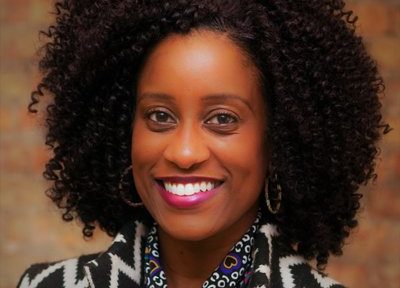By Siobhan Stewart, Howard University News Service
The D.C. Council’s unanimous approval of a measure to sharply limit short-term rentals brought to a close the contentious debate over affordable housing, gentrification and municipal tax revenues that had surrounded the proposal—but perhaps only for some time to come.
Council Chairman Phil Mendelson (D) touted a successful resolution through an even-handed compromise. But one of the harshest critics of the legislation warned of dire consequences for the city’s coffers, and some high tech trade association representatives feared the action might blemish efforts to cast the Washington area as welcoming to businesses like theirs.
Even as the regulations headed for final passage, there were mixed minds among some residents of neighborhoods east of the Anacostia River, where gentrification is just taking hold, racial disparities often have been unsettling, and city services at too many times in limited supply.
Naomi Wilkins grew up east of the river, and her mother still lives there. There’s some new housing in the old neighborhood, but there’s also a short-term rental, and her mom “sees different people all the time going back and forth,” Wilkins said.
“I definitely don’t think [a short-term rental property is] going to help the people who have been there for years for a long time, because it’s not those people who are renting it out and that’s not just the way it works.”
Asha Campbell seemed to be accepting of whatever might come. “The community is changing anyways, in the next 10 years, none of this will be here,” she said recently as she cast her election ballot at a neighborhood church. “We’re giving up our community…slowly but surely,” she added.
“To me, it’s part of life,” Campbell said, “so I don’t mind the coming together.”
The home-sharing issue, it seems, is much more grey than black or white.
The legislation passed Nov. 13 is similar to measures in New York and San Francisco. It would prohibit short-term rentals on second properties, and not allow property owners to rent spare space in their homes for more than 90 days a year when the principal occupant is away.
Opponents said its restrictions would hamper homeowners from earning supplementary income to help pay for properties in the District’s expensive housing market, and deprive the city of significant tax revenues, as well.
Supporters countered that the temporary influxes of outsiders often disrupts normal neighborhood lifestyles, and that using second homes as short-term rental magnets at a time of continuing gentrification adds to a shortage of affordable housing for less affluent residents.
Despite criticism that it would be one of the toughest in the nation, the bill the council finally passed was intended “to strike a balance in the demand for short term rentals without commercializing residential neighborhoods,” Lindsay Walton, communications director for Council Chairman Mendelson, said in an email.
There are about 9,000 short-term rental spaces in the District, two-thirds of which are listed with Airbnb. Firms like HomeAway and VRBO list the others
Airbnb spokeswoman Crystal Davis called the Council’s action a “reckless vote” to impose “a fiscally irresponsible home sharing policy” by “simultaneously depriving D.C. residents of $64 million in supplemental income annually and then sending D.C. taxpayers a bill for $104 million.”
The bill’s sponsor, Council member Kenyan R. McDuffie (D-Ward 5), applauded the passage of the legislation. “District residents looking to purchase a home will no longer be competing with investors who seek to list them on lucrative short-term rental platforms,” he said in a statement. McDuffie’s ward includes neighborhoods east of the river.
A group of trade associations representing high tech firms and travel interests complained that the council’s action could hinder the region’s effort to court companies like Amazon, which recently announced plans to open a satellite headquarters operation in Crystal City, Virginia—just across the Potomac River on the District’s western flank.
“The DC-area reputation has lured one of the largest tech companies to open a new HQ in our backyard. This anti-innovation approach is a step backward,” the group said in a letter to Mayor Muriel E. Bowser (D).
Just weeks before the D.C. Council’s final action and with less political turmoil, the Prince George’s County Council next door voted to impose restrictions on short-term rentals less stringent than the D.C. restrictions.
Prince George’s is one of the nation’s premier predominantly black suburban municipalities. There are some 1,500 Airbnb listings there, compared to 6,500 across the District line in the nation’s capital, and gentrification is less of a major issue.
The county legislation would allow residents to rent out their homes, but not other properties, on a short-term basis. It also would limit the number of guests, as well as the duration of their stay. And the county would tax short-term rentals.
The aim of that measure was “to allow residents to earn extra income on a limited basis,” without permitting “investors and others who don’t care” about neighborhoods to market their properties on short-term rental sites, the county’s deputy chief administrative officer for public infrastructure, told The Washington Post.
“Our primary concern is to minimize the impact of any of these activities on our neighborhoods,” Brad Frome said.
In July, the other Maryland suburb adjacent to the District, Montgomery County, passed legislation that restricts the rentals of the property owner’s home, limits the number of days for rentals, and sets a cap on the number of guests.
“We weren’t trying to be overly restrictive,” Pam Dunn, chief of functional planning and policy for the county, told The Washington Business Journal, “but it was also trying to prevent the large party house for a bachelorette weekend.”









